Horton consultant urges Banburyshire to support his work in India where Covid-19 lockdown threatens countless poor people
and live on Freeview channel 276
Dr Robbie Kerry is a consultant anaesthetist, currently working with Coronavirus patients in the critical care unit at the Horton.
A charity worker for over 20 years he helps run Nehemiah Ministries as its medical adviser. As the coronavirus pandemic sweeps the world and Dr Kerry is working flat out in Banbury's hospital, he is particularly worried about the plight of those locked down in India.
Advertisement
Hide AdAdvertisement
Hide Ad"I have personally seen the vast inequality there and how the Covid lockdown is far worse for millions of poor and vulnerable people in India than for us," he said.
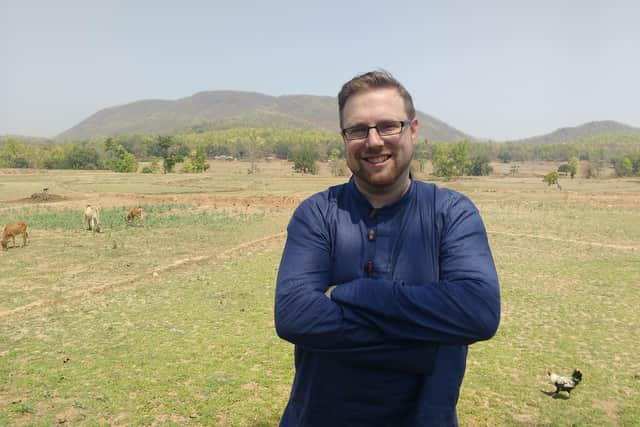

"It is genuinely feared that starvation and lack of access to usual medicines for underlying illness like diabetes will kill far more people in India than Covid. This is worsened by an inbuilt culture of casteism (prejudice and social class-based discrimination). So, in my down time and in my annual leave, I just can't ignore the plight of folk there who are far worse off than us - and where the equivalent of us foregoing a few takeaway coffees could remarkably transform hundreds of lives there."
The charity has a major appeal underway to help feed families left without income due to the very strict lockdown in the country. It is also trying to fund a tablet so the main field worker is able to keep in touch and write reports while out working with those in need.
"I've already funded a large solar powered battery back-up for him. Our other appeal was to fund an ambulance for a vulnerable and otherwise disadvantaged community. We are £4,000 towards our £6,000 target to purchase and fit a vehicle. We would supply volunteer drivers and clients contribute a very small amount towards fuel costs," said Dr Kerry.
Advertisement
Hide AdAdvertisement
Hide AdFor migrant workers and daily wage labourers, total lockdown across India means there is no work, no furlough, no income and often no food. With transport coming to a standstill overnight with no warning, migrant labourers were left hopeless, without food or water and some perishing trying to get home.
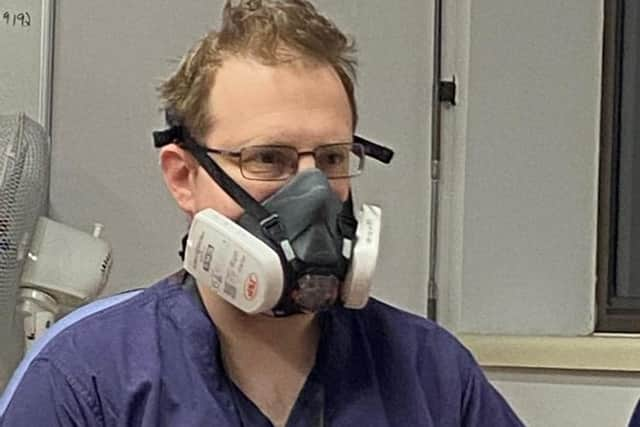

The charity is asking for donations and the film on this page shows that even a £12.50 donation can provide enough fresh food for a family for a week.
Dr Kerry has been visiting India for some years, from tribal villages in the remote hills of Orissa in the north-east to Nagapattinam in southern India, offering clinics to some of the poorest communities where access to healthcare is difficult and people die from minor illnesses because they have no access to a doctor. He pays his own expenses and uses his annual leave to offer this life-saving assistance.
Dr Kerry's clinics are always very popular. During the course of one day he might easily see 100 people who come to have their blood pressure checked, discuss their health problems or ask for explanations, in simple terms, of notes and letters received from local doctors.
Advertisement
Hide AdAdvertisement
Hide AdHe said: "I have seen patients presenting with all sorts of conditions, including uncontrolled diabetes, mystery fevers as well as cases of cancers. The lack of ambulances is major issue that can reduce the effectiveness of my intervention."
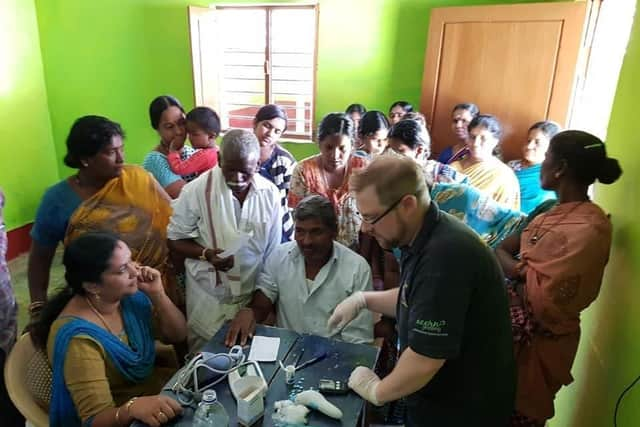

Many of Dr Kerry's patients are from the Dalit ('untouchable') caste and have experienced significant discrimination and persecution all their lives.
"Providing basic medical care is secondary to the main impact our visits have, which is to show that their lives matter, we value them and they are certainly not 'untouchable'," he said.
Passionate about promoting social justice among the poorest and most underprivileged people groups, Dr Kerry visited India for the first time in 1997.
Advertisement
Hide AdAdvertisement
Hide AdIn 2000, with his colleague Mr Rajan Jayakumar - with whom Dr Kerry shares a strong Christian faith - he founded Nehemiah Ministries, a charity that looks after people in poverty, providing them with opportunities for education. The organisation helps children overcome barriers to education, provides tuition and identifies child labourers.
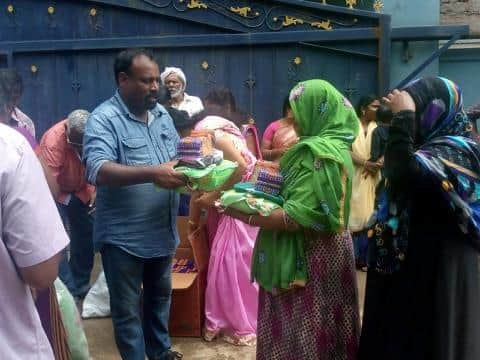

Dr Kerry said: "My family on my mother's side had been ex-pat workers in India for about four generations and my mum was born and schooled in South India, so its in my blood.
"My first visit to India was in 1997 which is when I met the co-founder of our charity and my best friend Rajan Jayakumar. I paid a further visit in 1999 to see community work among tribal groups and Jay visited the UK in 2000. At this time we decided to formalise our working relationship and we named our organisation.
"I have two other UK based trustees. It had been a registered charity since 2007 but Mr Jayakumar actually gave up his teaching job in an international school in 2004 to drop his pay significantly and work for the charity full time.
Advertisement
Hide AdAdvertisement
Hide Ad"I've seen first hand the impact of Covid here in the UK with families separated, especially when a loved one is taken critically ill and they can't have family visiting at such a difficult time.
"We see the impact daily of poverty on health; of how dependent we become on having a just society that protects the vulnerable. A National Health Service providing care free at the point of delivery is a core part of that.
"This crisis has been difficult on so many levels for many people but we are still fortunate to have a government that tries to support us in these times," he said.
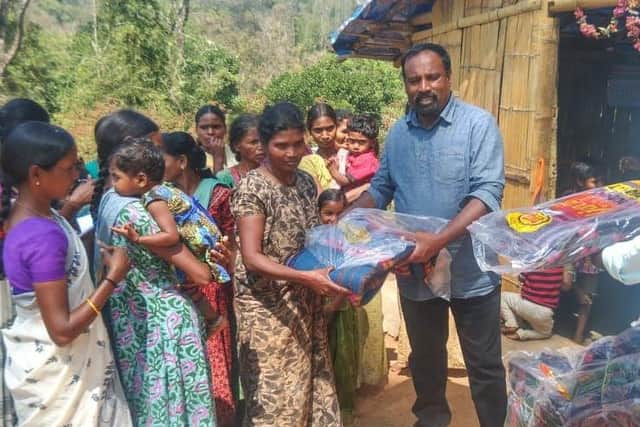

"I have personally seen the vast inequality in India and how Covid lockdown is far worse for millions of poor and vulnerable people there."
Advertisement
Hide AdAdvertisement
Hide AdDr Kerry thinks the coronavirus pandemic will prevent him being about to go to India as planned this year but he has provisionally recruited a specialist eye nurse who is volunteering to help run visual impairment clinics there next year.
To donate to this valuable work see here.